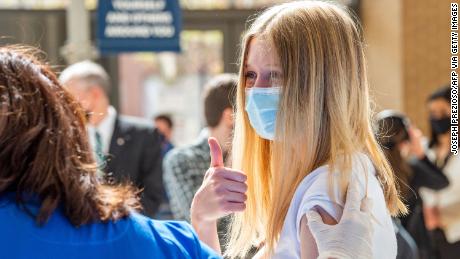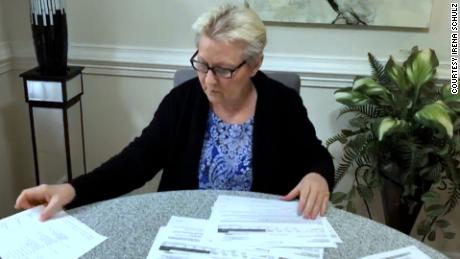This doctor became an early Covid patient. Now, he’s one of potentially millions dealing with lingering symptoms
In Saag’s case, Covid-19 was never so bad he had to be hospitalized, but he spent 15 days isolated in his room, and he got better — mostly.
His brain fog persisted. He was easily out of his breath. His heart raced. These symptoms lasted six weeks post-infection.
Saag said he has met other patients with ongoing symptoms who are frustrated, too.
“They’d gone to their providers who said, this is in your head, or this is not something to be worried about, but it was pretty profound,” Saag said.
Some people get better on their own over time, or symptoms can be treated, but for others, recovery remains elusive.
100 symptoms and little consistency
Symptoms are not consistent. Doctors can’t predict what symptoms someone will have or who will get them, and symptoms can change over time, or disappear and then come back.
“We first try to control the symptoms and then use that as a bridge to get them more physically active and then treat all the components that we can,” Miglis said.
But not all symptoms are that easy to address. “We don’t really have a single treatment that addresses the underlying disease, because we still don’t know what’s causing the underlying disease,” Miglis said.
Millions might be affected
“There’s probably a lot of people who have gotten this and not been identified. That’s one issue, how do we even come up with the criteria of what it means to be a long hauler?” Jason said. “There’s not a lot of consensus at this point, which is a problem.”
Who are the long haulers?
The FAIR Health study that looked at insurance records between February and December 2020 found the post-Covid conditions were more common among patients with more severe Covid-19, but a “substantial” share of asymptomatic cases also had long-term symptoms. More research is needed, it said.
Most of the post-Covid conditions studied were more common in females, yet there were 12 symptoms more common among men.
“I’ve been struck by how many people have no underlying conditions, in fact, a couple marathon runners that are young in the 20s and 30s. They come back with post-Covid conditions that they have trouble sometimes just standing in the shower,” Saag said about some of the patients he has treated.
What’s being done
The American Medical Association policy adopted this week also called for advocacy for more funding for research, prevention, control and treatment.
The post-Covid clinics see signs of hope
“When I was speaking to the media three months ago, I would say everyone is improving, and we’re encouraged by how their improving, but there’s not a single person that’s beyond Covid,” said Purtino. “Now, after months and months of working and perfecting this, we have dozens of individuals that we’ve now discharged telling us they feel like they did before Covid. This is a new development.”
For many patients it hasn’t been easy. On average, he said, it’s 100 days of therapy. “It’s a long process, very slow, very incremental therapy, twice a week, and people need to make a lot of behavioral and life adjustments along the way to avoid symptoms triggers and exacerbations,” Purtino said. “But you know, we feel pretty encouraged that we’re finally getting some traction.”
“I tell them it’s like when you break a bone. If we take the cast off, it’s not going to be ready to run right off the bat. You’ve got to rehab it, and it’s going to be uncomfortable, but it will get better,” Galiatsatos said.
Another category of patient develops symptoms that can be treated that are more pulmonary-specific, like asthma.
“Everything from brain to feet can be affected,” Galiatsatos said. Some people also need mental health care.
“The last category of patients we see have symptoms that don’t fit an actual disease process that we are aware of,” Galiatsatos said. He tells them they’ll figure it out together.
One patient he treated compared it to how good doctors treated AIDS in the ’80s.
“Sometimes we have to do a little bit of outside the box thinking on how best to help,” Galiatsatos said. “But I have confidence we can.”
![]()








